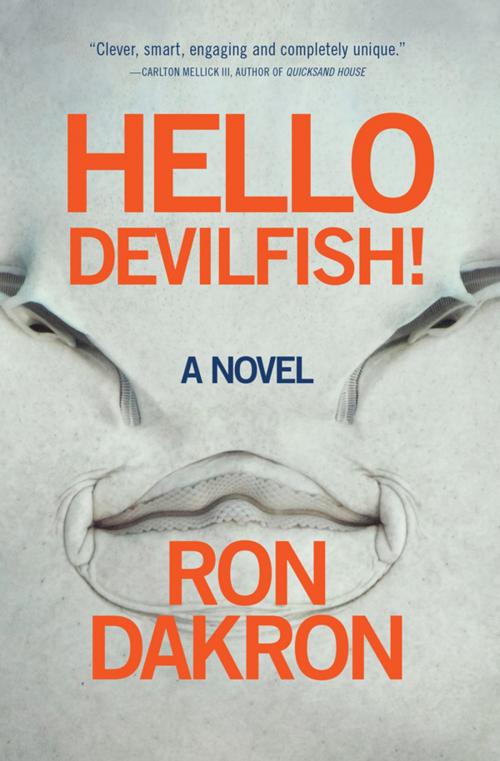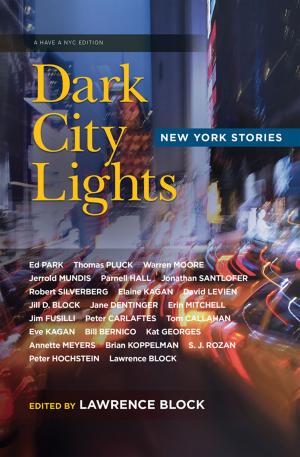| Author: | Ron Dakron | ISBN: | 9781941110034 |
| Publisher: | Three Rooms Press | Publication: | October 20, 2014 |
| Imprint: | Three Rooms Press | Language: | English |
| Author: | Ron Dakron |
| ISBN: | 9781941110034 |
| Publisher: | Three Rooms Press |
| Publication: | October 20, 2014 |
| Imprint: | Three Rooms Press |
| Language: | English |
Hello Devilfish! is a first-person (or first-fish) account of a giant blue Japanese movie monster stingray’s attack on contemporary Tokyo and his tragic morph into human form. Using elements of Japanese shock-pop and the infamous Hello Kitty meme, the story is told in comic narrative from the stingray’s point of view as he gleefully creams Tokyo into rubble. The stingray is soon pursued by Squidra, a love-struck giant squid. She demands love; he refuses. In an epic waterfront battle, she traps him in a human-growth hormone bath that changes him into a puny human - a reverse metamorphosis - monster to man. Refusing to accept his humanity, the stingray acts like his former giant self while trying to find food, shelter, romance - and avoid the destructive rampage of his stalker squid love interest. Hello Devilfish! is told in a readable, comic narrative occasionally spiced with Manglish words. Funny and very readable, underneath the outlandish plot is a truly fresh critique of contemporary culture and mainstream literature.
Hello Devilfish! is a first-person (or first-fish) account of a giant blue Japanese movie monster stingray’s attack on contemporary Tokyo and his tragic morph into human form. Using elements of Japanese shock-pop and the infamous Hello Kitty meme, the story is told in comic narrative from the stingray’s point of view as he gleefully creams Tokyo into rubble. The stingray is soon pursued by Squidra, a love-struck giant squid. She demands love; he refuses. In an epic waterfront battle, she traps him in a human-growth hormone bath that changes him into a puny human - a reverse metamorphosis - monster to man. Refusing to accept his humanity, the stingray acts like his former giant self while trying to find food, shelter, romance - and avoid the destructive rampage of his stalker squid love interest. Hello Devilfish! is told in a readable, comic narrative occasionally spiced with Manglish words. Funny and very readable, underneath the outlandish plot is a truly fresh critique of contemporary culture and mainstream literature.















